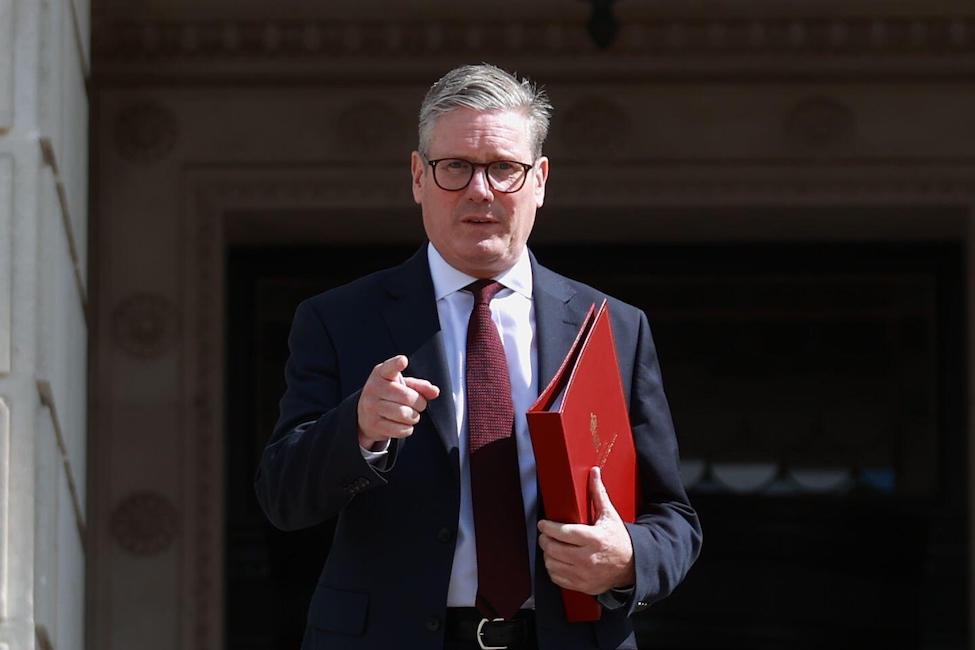Nadine Dorries, the lingering member for Mid Bedfordshire, is on a mission. 77 days after she announced her resignation with “immediate effect” in protest at being left off Boris Johnson’s resignations honours list, she continues to investigate the terms of her spurning.
It is not yet clear whether the former culture secretary’s amateur sleuthing has yielded any reward, but she remains convinced as to the harbingers of her present discontent: those “posh boys” in No 10 who selectively exorcised her from Johnson’s gongs list.
Why would they block her? “It’s to punish Boris”, Dorries told the FT some months ago now.
The specifics of the case, rehearsed elsewhere, point to a different version events. But Dorries is defiant. Sans ermine, she shows no sign of fulfilling her vow to trigger a by-election in Bedfordshire — that is despite failing to speak in the House of Commons for a full 414 days.
And as the numbers tick higher — 414 days from the commons, 77 days after her “immediate” resignation — Dorries continues to draw her parliamentary salary. Her downing of tools since Johnson’s defenestration as PM last summer is, therefore, emerging as a serious problem for Sunak not merely on account of her sustained sleuthing.
Indeed, while by-elections have come and gone in both Uxbridge and Selby, prompted by resignations of Boris Johnson and Dorries’ fellow scorned ally Nigel Adams, the good people of Mid-Bedfordshire await an opportunity to have their say. And a recent Opinium poll found that 55 per cent of people think Dorries has caused significant damage by failing to speak in parliament and delaying her decision to quit.
Meanwhile, the former culture secretary’s latest book, The Plot: The Political Assassination of Boris Johnson, is set to be released at a time of peak political sensitivity in September, just three days before a crucial Conservative Party conference gets underway.
So what is to be done about Dorries? What options are left to Rishi Sunak to remove the “lingering member”? And, above all, will the PM use them?
Force Dorries out of parliament
First of all, there is the strategy proposed by standards committee chair Sir Chris Bryant, who wants to see the restoration of a parliamentary rule from 1801 stating that “no member do presume to go out of town without leave of this House” in an effort to force Dorries to make good on her promise to resign. He told politics.co.uk earlier this month that he would have a motion “ready” by parliament’s return on 4 September.
Assuming Bryant follows through on his threat, Sunak could back the motion, collect the political rewards for playing a key part in the downfall of Dorries and, in all likelihood, secure a place in a future book penned by the now-former MP about the “plot” to remove her.
Besides Bryant, there is also the tactic, raised in a recent article for ConservativeHome, that says a motion could be introduced to the commons which reads, simply: “That Nadine Dorries be expelled this House”. The news website-of-choice for Conservative Party members evokes Erskine May as it explains how the function of simply expelling a member from the commons is “an example of the House’s power to regulate its own constitution”. The measure has been used twice since 1945, the account explains, most recently in 1954.
There is little chance the government would table this motion itself upon parliament’s return in September — but, as with Bryant’s bid, it could nonetheless ride an anti-Dorries bandwagon, lest ministers be accused of backing the lingering member for Mid Bedfordshire.
Of course, there is one major problem with these approaches for Sunak, centring on the fact that by ditching Dorries, the PM would willingly beckon a difficult by-election in her seat.
Dorries won her Mid-Bedfordshire constituency for the Conservative with a 24,664 in 2019, by a margin some 4527 votes higher than Nigel Adams won Selby at the last election. But the nature of the race, likely shaped by the long shadow of Dorries — with opposition resources not split between different areas of the country as was the case with Selby, Somerton and Uxbridge — would make the contest especially trying. It would also likely have to come in September or early October, just as Sunak seeks to inaugurate a soft reset of his premiership.
Still, there may be a way for Sunak to move towards a by-election in Mid Bedfordshire on terms, and with a schedule, that suits his government.
The fact that Dorries’ new book about “the Political Assassination of Boris Johnson” is set for release, just three days before Conservative Party conference begins on the 1 October, raises the prospect that the “lingering member” could fulfil her resignation vow close to the end of September to accumulate as much publicity for her book as possible. It may therefore be in Sunak’s interests to deal with Dorries quickly upon parliament’s return.
Moreover, if Sunak was to act decisively on Dorries, it would signal a fabled break with the Conservative party’s recent past. The PM could make a virtue of his pivots against his predecessor-but-one’s closest ally in a Mid-Bedfordshire by-election, all while ensuring the seat’s voters have the chance to choose a new MP at an early opportunity.
Of course, in vote in June on the privileges committee report into Boris Johnson, Sunak was criticised for abstaining. But there are rumours that Sunak will return to parliament in September with renewed machismo, no longer shirking from potential battles with his political opponents. Would this include pivoting against the almost universally unpopular Nadine Dorries?
Remove the Whip
Perhaps a less stark, or electorally costly, approach to the Dorries dilemma would be for Sunak to remove the Conservative whip from the member for Mid Bedfordshire.
And this is exactly what senior Conservative MP Caroline Nokes, who serves as chair of parliament’s women and equalities committee, has urged the PM to do in recent days. She told Times Radio: “She shouldn’t have the Tory whip if she’s made it plain that she no longer wishes to be a Conservative MP but can’t take that final step towards resignation. I think she needs to crack on and do that.”
But while removing the whip from Dorries would signal a heightened level of seriousness regarding the lingering member’s status as a Conservative MP — and perhaps detach her PR problems from those of the Tory brand — it does not deal with the essential Dorries dilemma. That is the fact that the former culture secretary can continue to resign as and when she pleases at a moment of particular political sensitivity for the PM.
What also should be informing the PM’s decision-making is that it may suit the Labour party to have Dorries linger longer. For Keir Starmer’s political purposes, Dorries serves as a reminder to the general public of Sunak’s struggle to establish authority in his party. And, even in the unlikely scenario that Dorries holds onto her seat up to a general election, (perhaps making the Mid Bedfordshire seat more winnable for Sunak), her presence as an assumed symbol of Conservative decline — as well as of Sunak’s lack of decisiveness in-and-around his party — will surely have taken a significant toll on the PM’s brand.
So like so many of Rishi Sunak’s other party management problems, the PM is electorally damned if he does ditch Dorries, and damned, seemingly, if he doesn’t.
Now only time will tell with parliament’s return whether Sunak will bury his instinct for inaction on such matters and find a schedule that can see Dorries finally leave parliament, all while working to his political ends.












